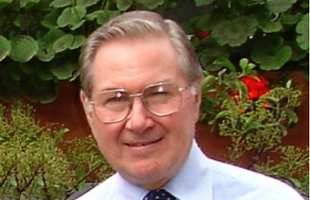The following obituary was submitted by Peter's son, Philip.
Peter Beales, MBChB, DTM&H, MD, FFPH, died peacefully from acute myeloid leukaemia on January 3, 2013 in London. He was 77 years old. He is survived by his wife Noy, two children and four grandaughters. He devoted his life to improving the health in developing countries and will be remembered as a highly experienced, strong and resourceful leader in the fight against malaria and tropical diseases.
After leaving school, he worked as a lab assistant to Professor Grant at Guys Hospital and then joined the WHO as a young entomologist in 1956, initially working in Afghanistan. Travelling by horseback, he and his colleagues were the first white men to be welcomed in valleys of the Hindu Kush. His next posting took him to Ceylon by truck, encountering several dangers along the way via Pakistan and India. In the late 1950s, he also worked in Burma, North Borneo, Laos and Thailand where he met Noy. They got marred at the British Embassy in Bangkok in 1960. 
In 1962, Peter was offered a first MB place at Liverpool and moved there with his young family. Qualifying in 1968, he worked for Professor Brian Maegraith, who was dean of The Liverpool School of Tropical Medicine. In 1969, he obtained his DTM&H and in 1970 was appointed an assistant professor in medicine and public health at the University of Hawaii. There, he continued research, started by John F. Kessel, on filariasis in the Pacific Islands. The U.S. Department of the Interior soon appointed him director of medical services in American Samoa and he became involved in the Apollo 14 scientific mission. In recognition of his assistance to survivors and relatives of the fateful Pan Am Flight 806 disaster in 1974, Beales received citations and commendations from the Samoan Government, U.S. Military and the U.S. Department of the Interior.
By the end of 1974, Beales rejoined the WHO as senior malaria advisor to the Thai Government until 1980 when he received a citation from the Thai Government in recognition of his service to public health. He became chief of programming and training in WHO’s Malaria Action Programme in 1980 and also chief of training for the control of tropical diseases in 1990. He was also the co-founder and coordinator of WHO’s Health Academy. hroughout his life, Beales was the author of more than 67 publications. He was a consultant to the European Union, Spain and the UK and numerous other countries across the world. Despite officially "retiring" in 1996, he continued to work freelance for the WHO and returned to Afghanistan in 2006 to 2008. He worked as a visiting professor at Kuwait University until just before his death, contributing to the work and development of the Dasman Diabetes Institute.
He will always be remembered for his knowledge, wisdom and creativity. Those who worked with him had the opportunity to see a visionary who was not only a man of character but also a man of heart. He was the perfect role model for those in his profession and an ambassador for his country. The knowledge and skills he has passed on to others will be his greatest legacy.
See also WHO's obituary for Dr. Beales.
Image courtesy of Philip Beales.